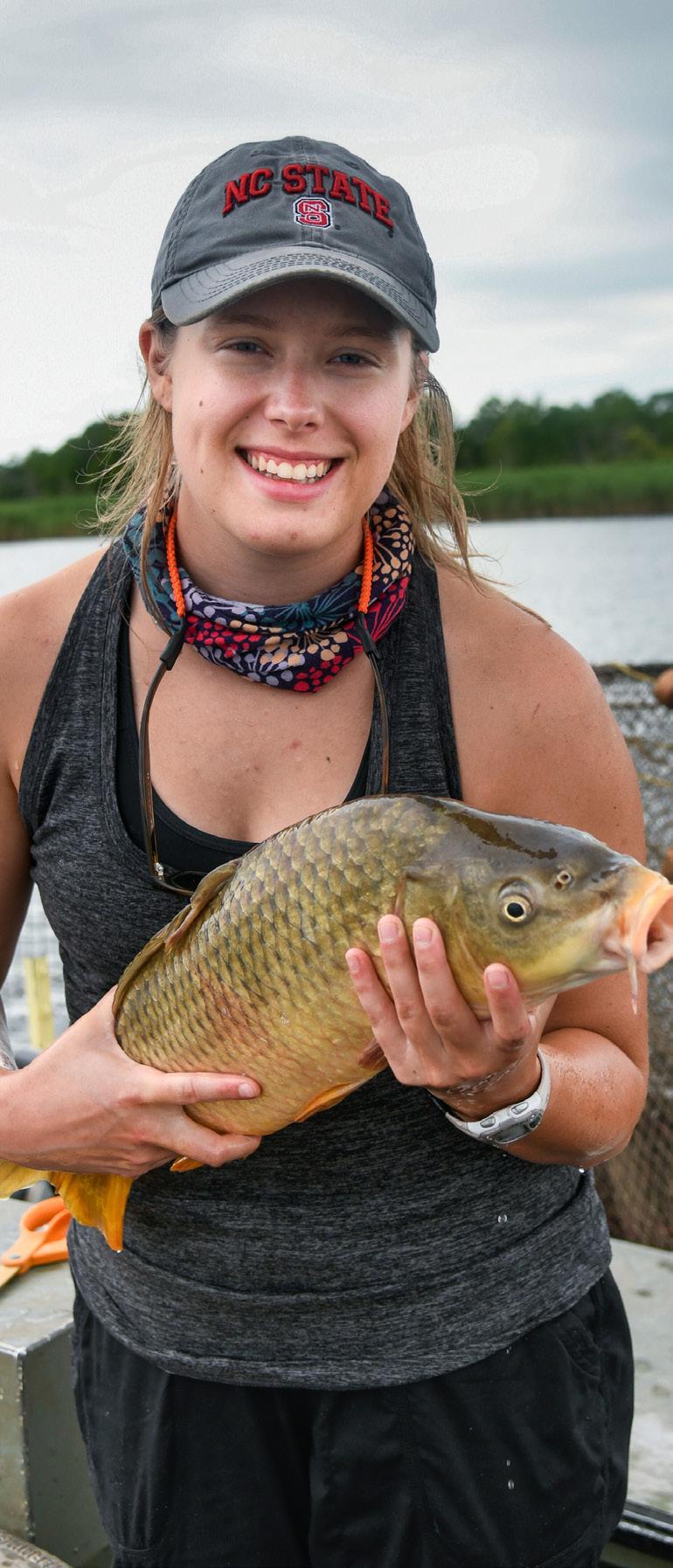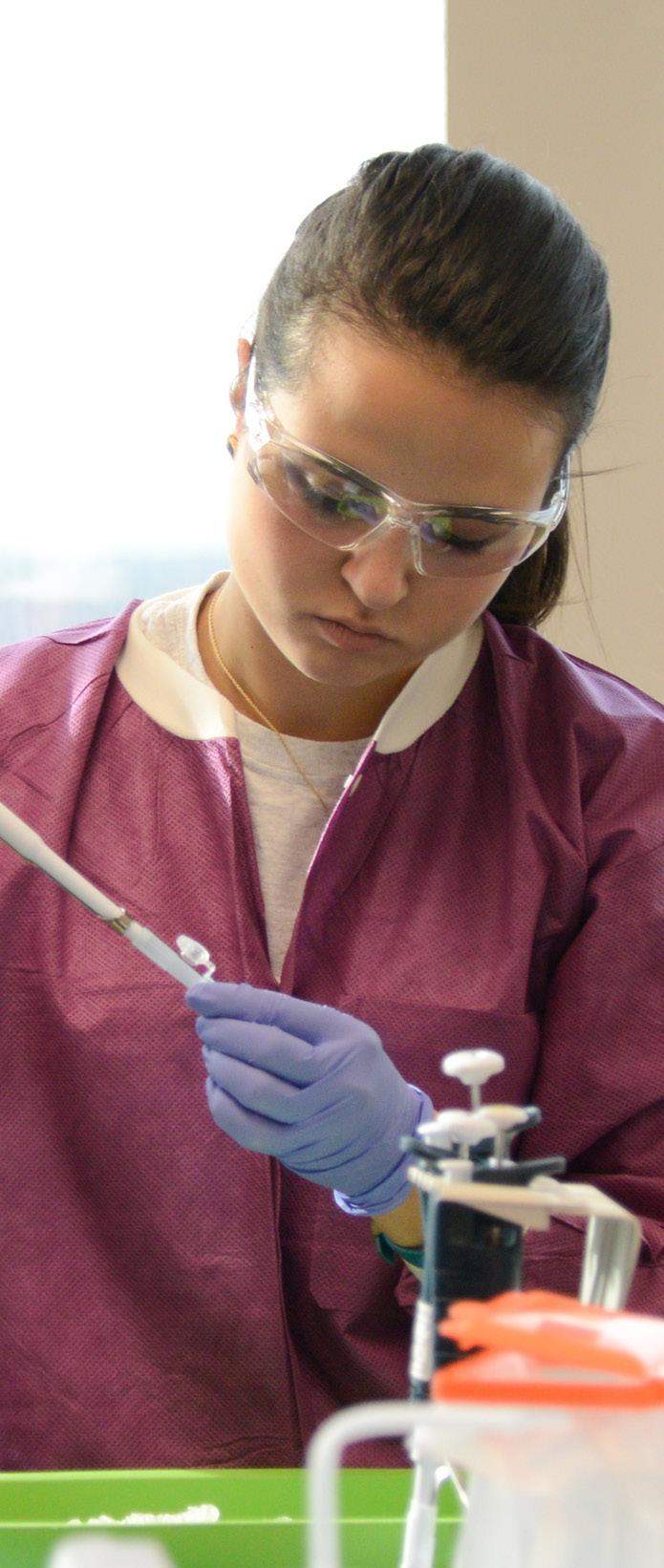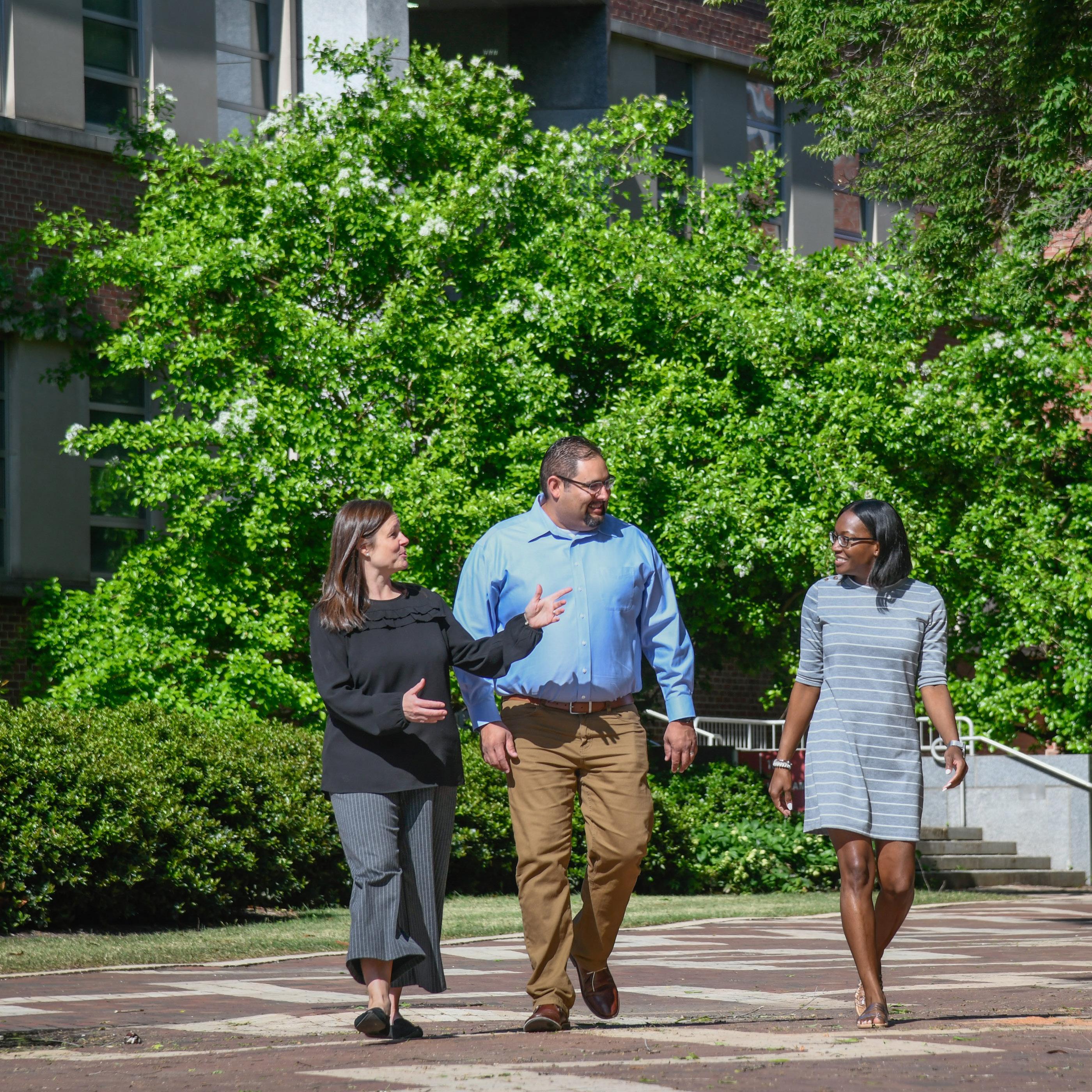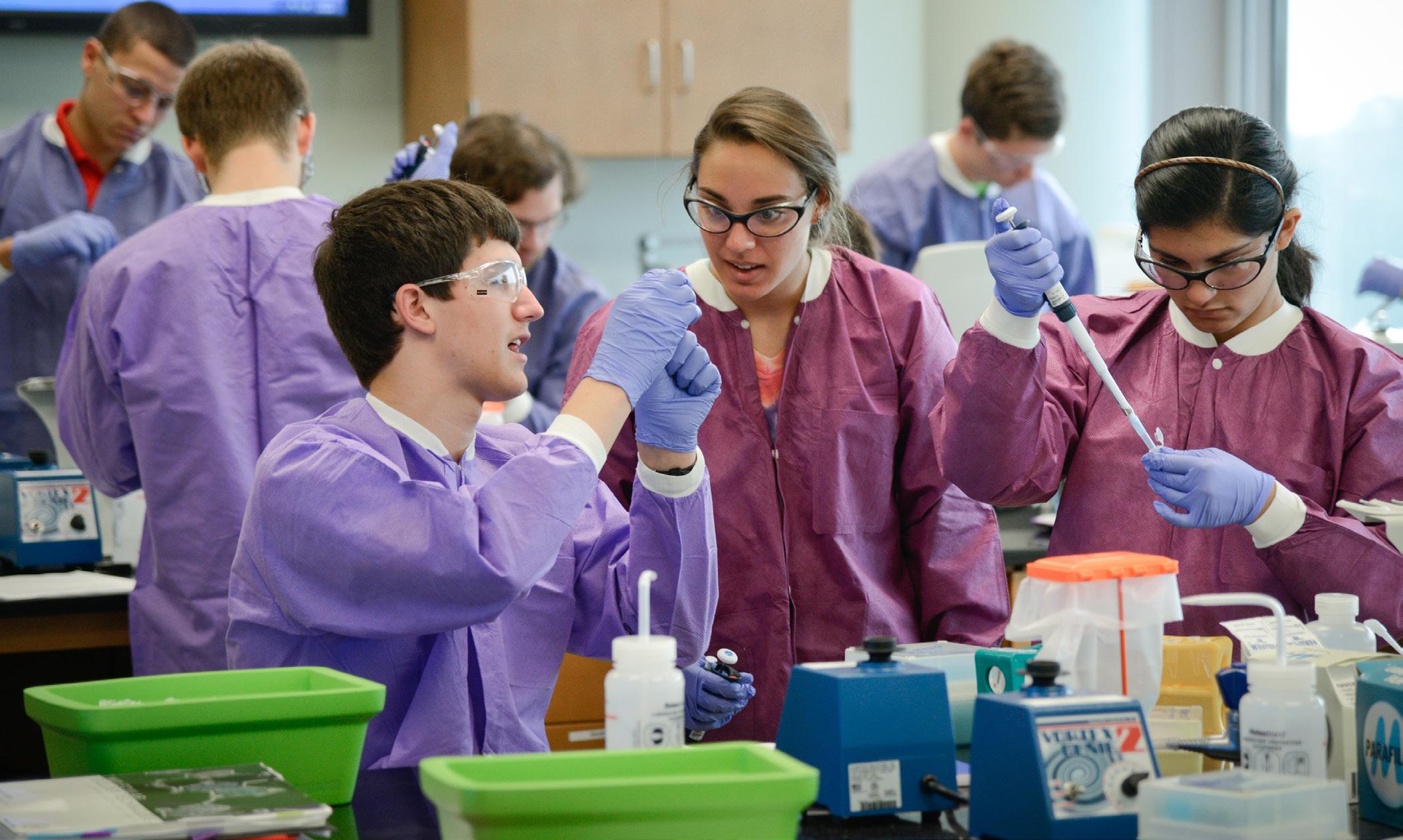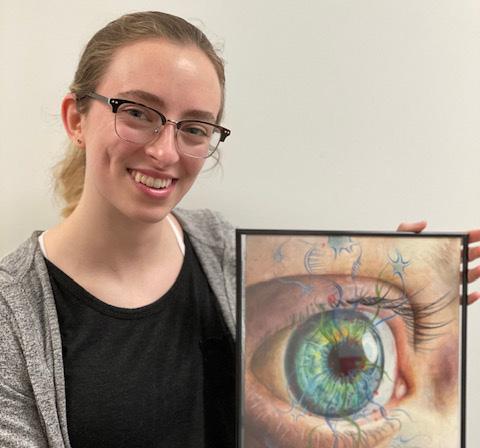Why the LSFY Program?
Small college feel with the resources and opportunities of a large university.
Opportunity to explore majors and careers prior to entering a selected major.
Interaction with undergraduate program directors from the life sciences majors.
Dedicated academic advisors who support the student transition to college, both in the classroom and through one-on-one meetings.
Courses are offered exclusively to LSFY students to help build confidence and explore unique opportunities in the life sciences.
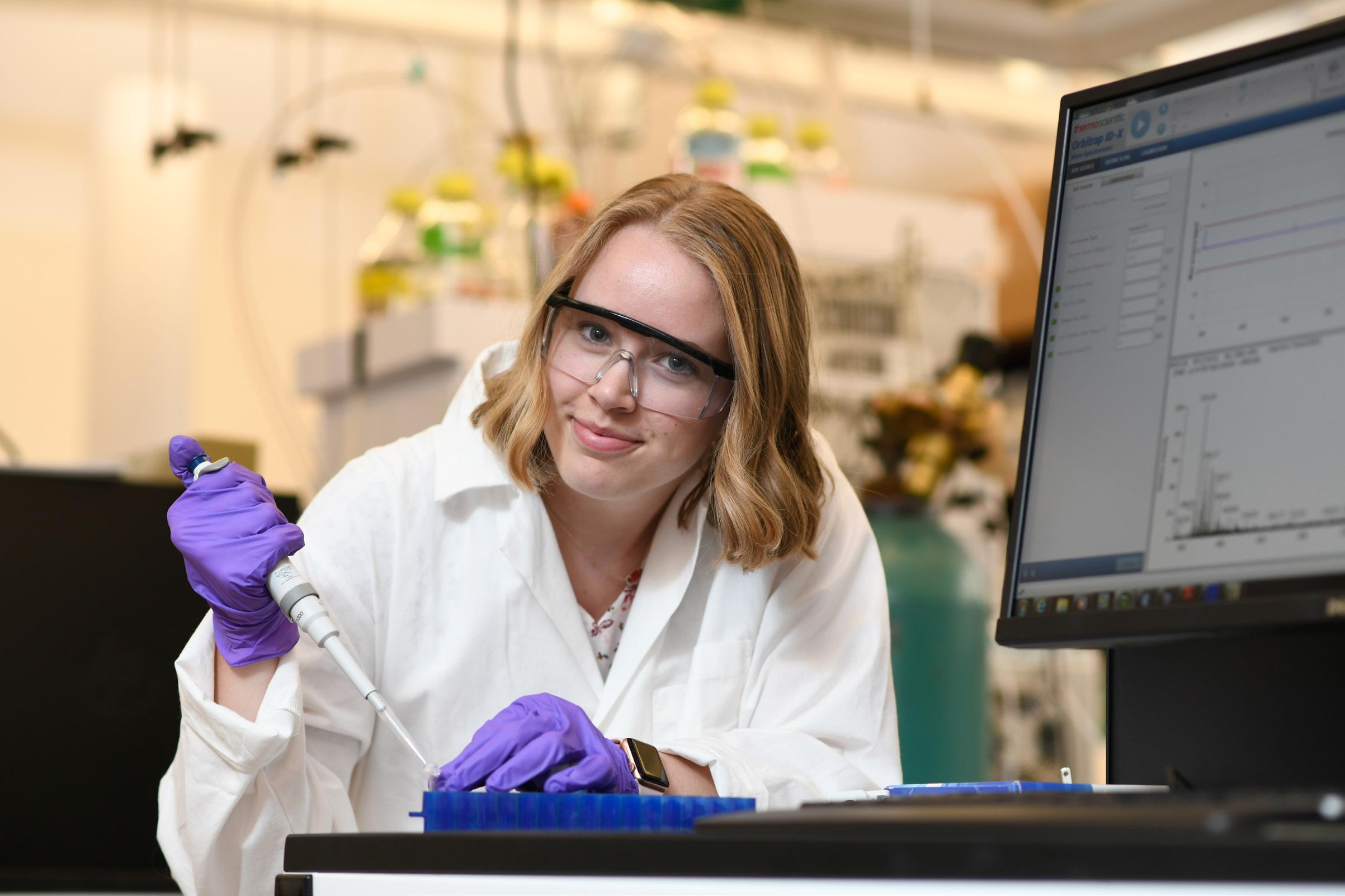
“My relationship with my LSFY academic advisor has shown me that I have an amazing support system here at NCSU!! She takes her time by listening and understanding why my career interests are so important to me, and by doing that she advises me to take certain courses that will make me successful in reaching those goals.”
- Stephanie Dominguez-Mendoza
Role of Advising
Advising in the LSFY program is a teaching and learning partnership between advisors and students. Through this partnership, advisors will challenge students to develop autonomy and build skills necessary for success as they embark on a journey of academic, personal, and professional growth.
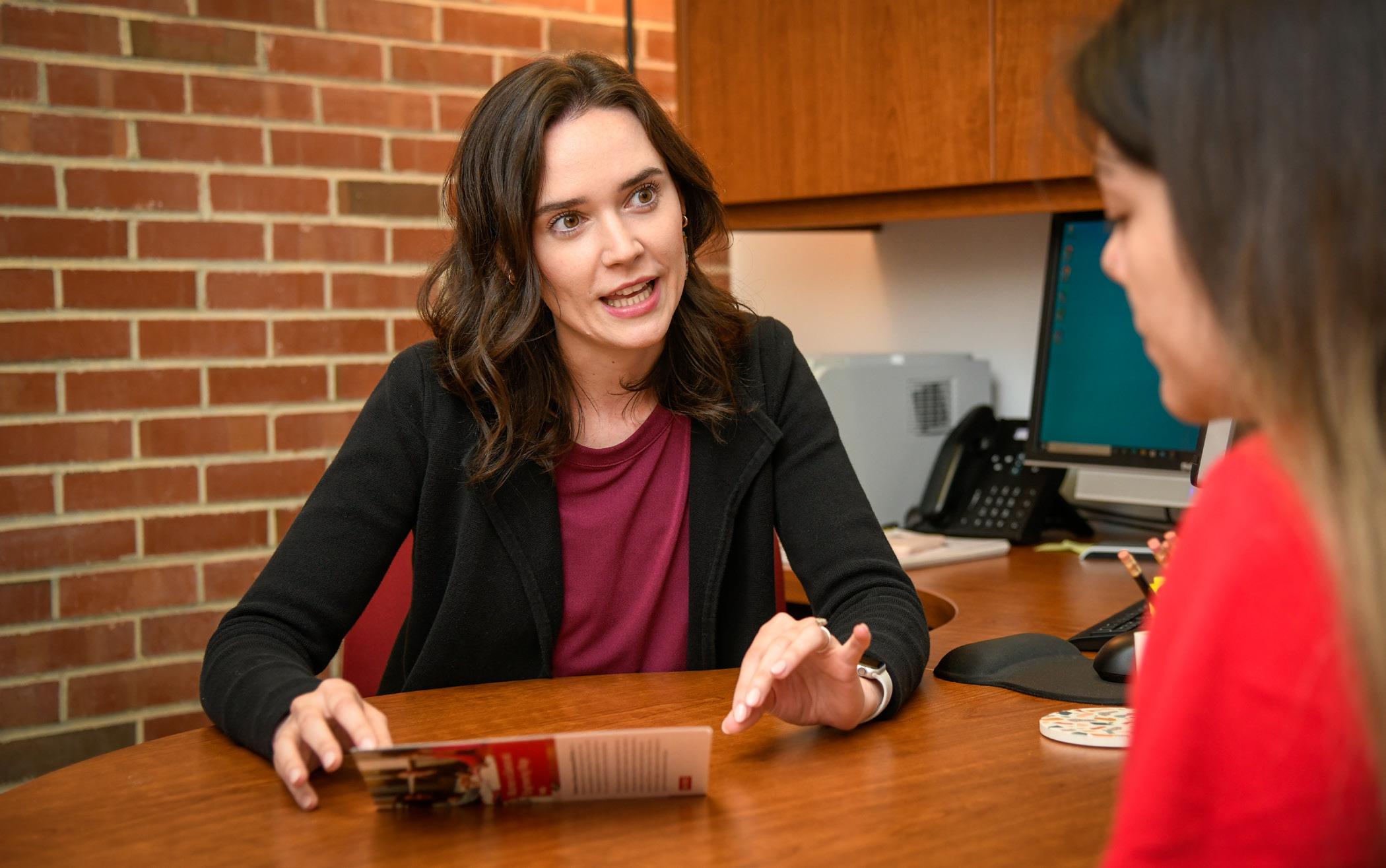
> Six full-time academic advisors.
> Each advisor also serves as an instructor for LSC 103: Exploring Opportunities in the Life Sciences.
> The average LSFY advisor to student caseload ratio is 1:125. The national average is 1:296.
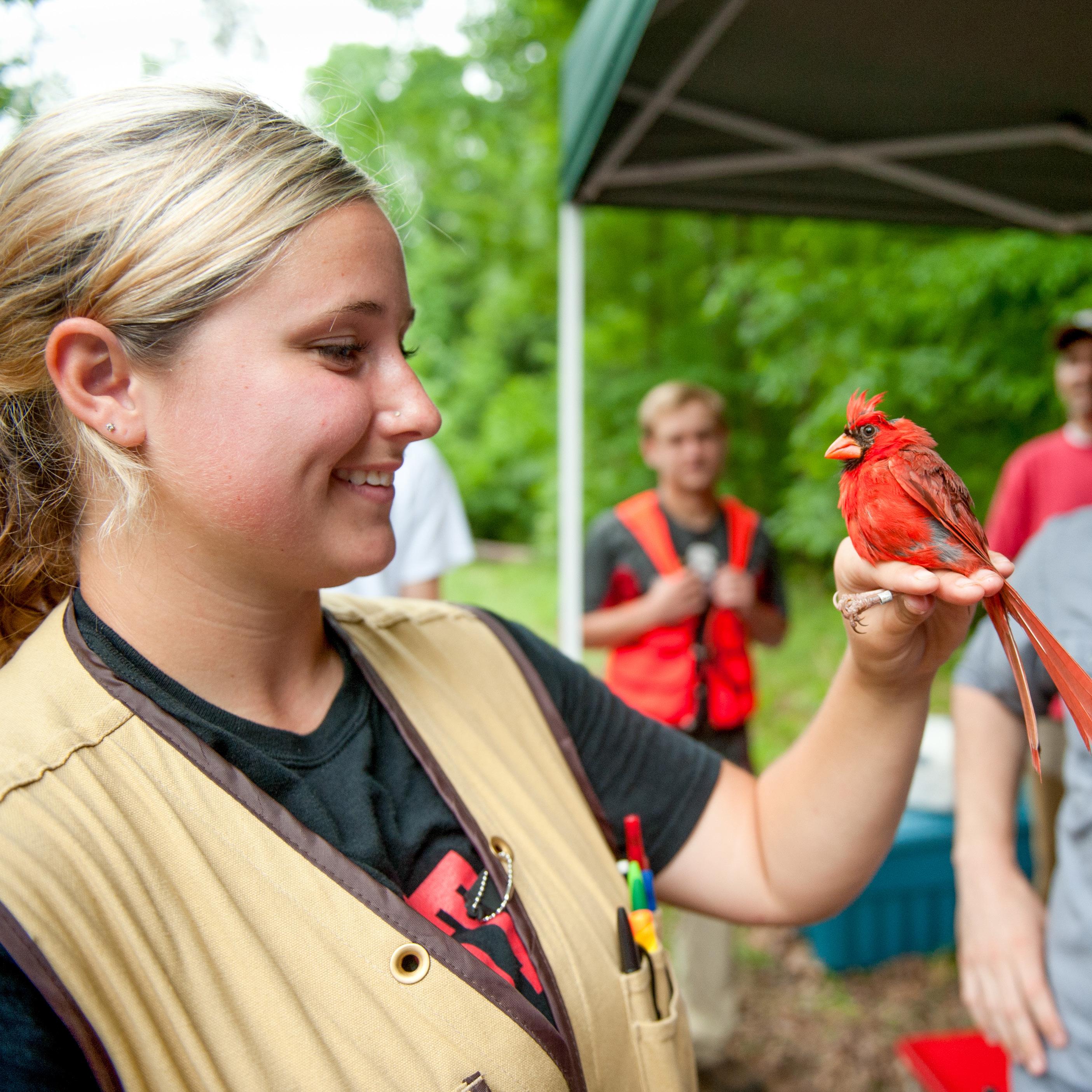
LSFY Student Intended Majors
1. Biological Sciences (BS)
2. Biochemistry
3. Zoology
4. Genetics
5. Biological Sciences (BA)
6. Nutrition Science
7. Microbiology
8. Plant Biology
Over the last 5 years:
82%
of students formally declared one of the LSFYsupported majors upon completion of the program
Common Curriculum
LSC 101: Critical & Creative Thinking in the Life Sciences
Through case studies and discussion-based classes, this course guides students through a metacognitive approach to (1) critical and creative thinking, (2) the nature and practice of science, (3) the rhetoric of science and (4) the process of learning.
LSC 103: Exploring Opportunities in the Life Sciences
In this course, students will think about their transition from high school to college; identify campus resources and explore academic policies; research potential majors in the life sciences as well as potential minors; attend and reflect upon cultural and educational events across campus; and create a plan for success at NC State University.
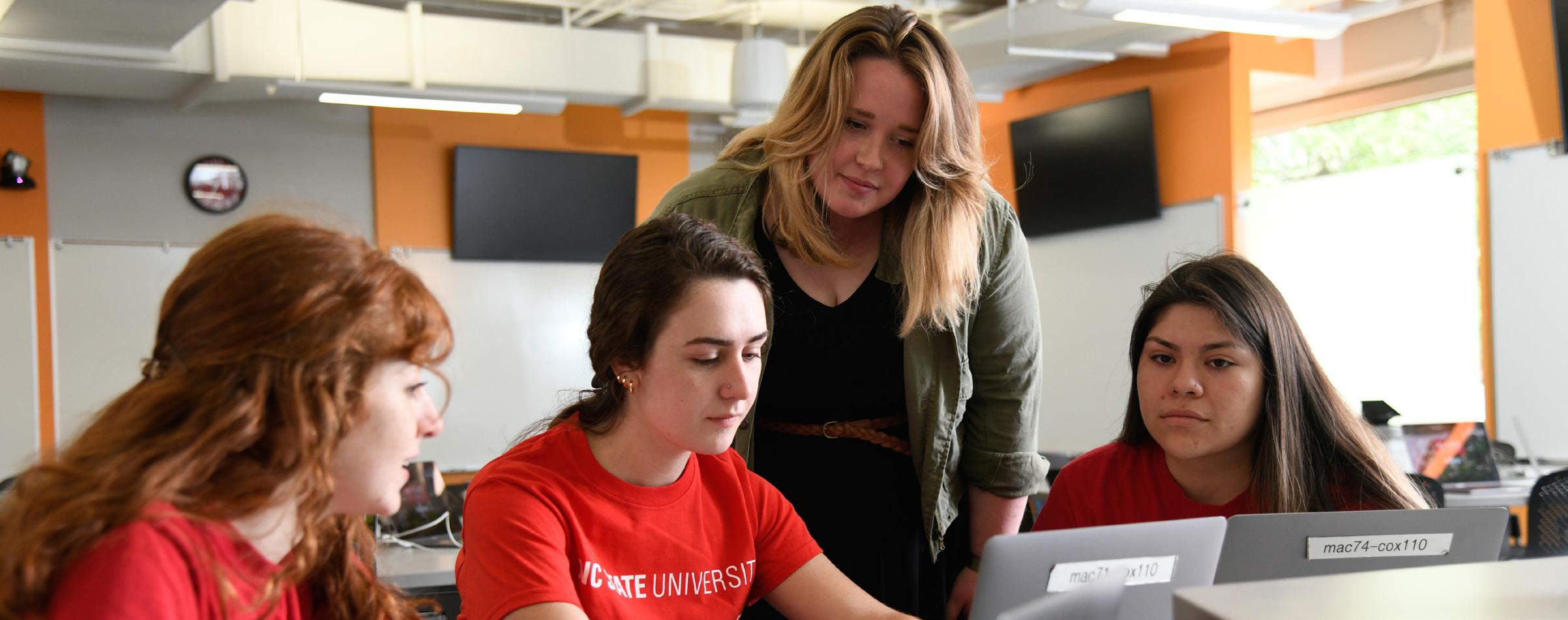
LSC 170: LSFY Seminar (Optional)
An optional opportunity for LSFY students to work in a small group setting with a faculty member to explore a topic within the faculty member’s area of expertise. Examples of seminars include: Cold-Case Investigation, Cancer Biology, Exotic Animal Diets, and Sustainable Living.
Major Offerings
Below is a list of majors and concentrations offered within the LSFY Program. The majors we support include a variety of biology, chemistry, calculus and physics courses. To view each major’s curriculum, visit NC State’s academic catalog at go.ncsu.edu/majors-catalog.
> Biochemistry
The biochemistry major focuses on the discovery and understanding of the chemical principles of life. It is a wide-ranging field covering the composition, biosynthesis, structure, and function of biomolecules and the regulation of biochemical processes within organelles, cells, organs, and organisms.
> Biological Sciences (BA)
The Bachelor of Arts (BA) in Biology was created to meet the needs of students who want a solid foundation in the life sciences and also plan to pursue extensive studies in a second, complementary discipline outside of the life sciences.
> Biological Sciences (BS)
The Bachelor of Science (BS) in biological sciences educates students on the structure, function, behavior, and evolution of cells, organisms, populations, and ecosystems. As a BS biological sciences student, you’ll explore the structure, function, behavior and evolution of cells, organisms, populations and ecosystems.
> Ecology, Evolution, and Conservation Biology (EEC)
The ecology, evolution, and conservation biology (EEC) concentration offers students an opportunity to explore conservation issues, evolutionary issues and management issues relevant to animals and plants.
> Human Biology (HB)
The human biology (HB) concentration offers training in areas of science important to healthrelated professions, as well as relevant aspects of the humanities and social sciences.
> Integrative Physiology and Neurobiology (IPN)
The concentration in integrative physiology and neurobiology (IPN) provides a comprehensive grounding in basic principles of physiology and neuroscience, as well as in-depth exposure to the application of those principles in understanding whole-animal function, links between physiology and behavior and the ways in which animals cope with challenges presented by their environments.
> Molecular, Cellular, and Developmental Biology (MCD)
The molecular, cellular, and developmental (MCD) biology concentration offers students indepth studies of the molecular and cellular basis of life by studying DNA, RNA, amino acids, proteins and cells. Exploration of single cells through development to organisms occurs with this concentration as well.
> No concentration
Students majoring in biological sciences without a concentration receive comprehensive training in biology, spanning plant and animal life. Students explore the structure, function, behavior, and evolution of cells, organisms, populations, and ecosystems.
> Genetics
The genetics major complements other degree programs in the biological and life sciences at NC State, as it prepares students for further graduate study, professional schools (such as medical, dental, veterinary) or careers in industries whose products are based on biological and agricultural research, including biopharmaceutical and biotechnology companies. The degree in genetics is the only genetics major offered in the UNC system.
> Microbiology
The microbiology major is concerned with the growth and development, physiology, classification, ecology, genetics, and other aspects of the life process of an array of microscopic, generally singlecelled, organisms and viruses. Students can opt for a general curriculum or can choose to focus in a particular area by selecting one of three areas of concentration:
> Microbial Health Science
The microbial health science concentration is designed for students who plan to go on to graduate school in health-related fields, including medicine, dentistry, veterinary medicine or pharmacology.
> Microbial Biotechnology
The microbial biotechnology concentration is designed for students who want careers in biotechnology or biomanufacturing after graduation. Many microbial biotechnology students also minor in biotechnology or biomanufacturing.
> Biological Sciences (BS) (continued)
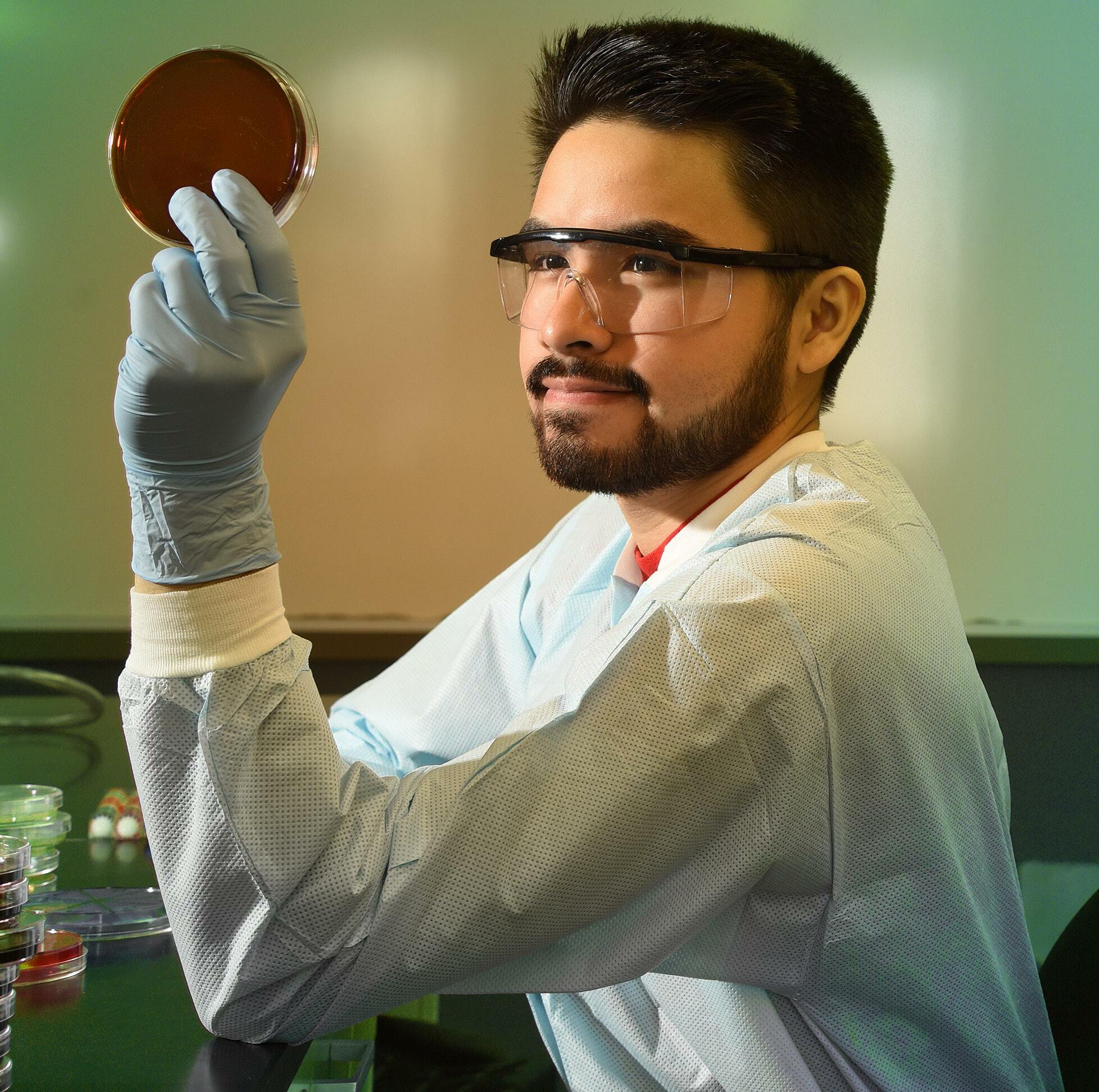
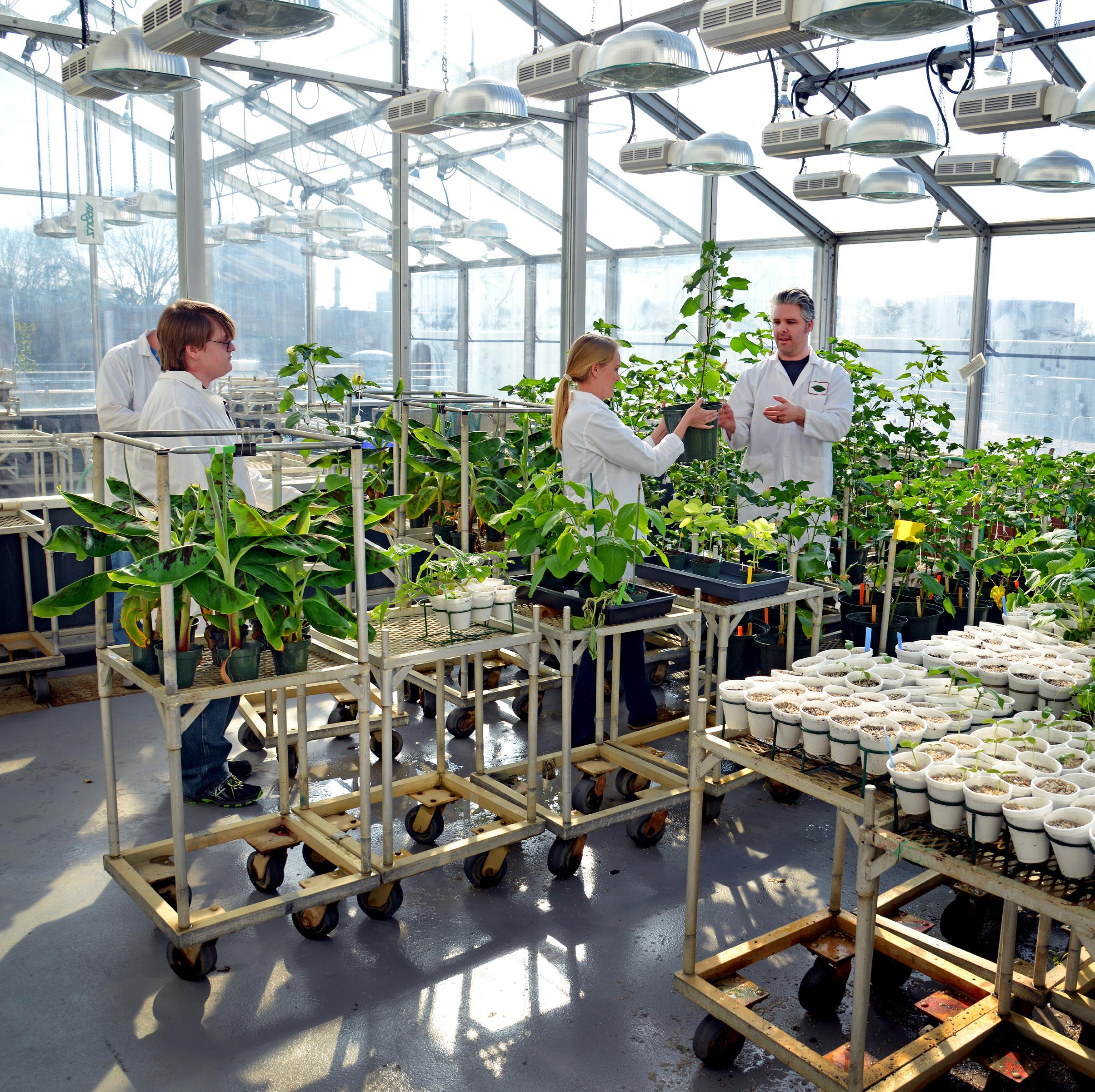
> Microbial Research
The microbial research concentration is designed for students who intend to continue their education in research-oriented doctoral or master’s degree programs.
> Nutrition Science
Nutrition Science incorporates many components of physical, life and social sciences with chemistry, biology, microbiology, genetics and psychology. These areas are applied to the study of how nutrients and food affect health and how individuals and communities make health-related decisions.
> Nutrition Science
This program fulfills prerequisites for medical, dental and pharmacy schools, as well as other health professional programs like optometry and physical therapy.
> Applied Nutrition
Applied Nutrition focuses on programming or public health initiatives of healthy eating and health-related activities necessary for improving the quality of life. This program fulfills prerequisites for physician assistant and accelerated nursing programs that do not require physics and typically require less chemistry.
> Plant Biology
A degree in plant biology provides classroom, laboratory and field experience in the fundamental areas of the plant sciences. Students can choose to pursue a general major with courses in different areas of plant biology, or can specialize their study in one of the following areas: Ethnobotany, Plant Physiology and Molecular Biology or Plant Systematics and Ecology.
> Zoology
The zoology degree attracts students with a strong passion for animals. Students acquire knowledge of zoology from the organizational level of molecules and cells to the organizational level of ecosystems. The major offers flexibility in the selection of upper-level courses to then specialize or remain generalized, according to individual interests and career goals.
> Microbiology (continued)
”As a Class Assistant for the LSFY program, I have become a stronger leader and peer mentor through exposure to different paths and perspectives in the life sciences. Practice presenting in front of an audience and giving students advice has greatly improved my communication skills, while discussing technical aspects of the life science majors has expanded my understanding of the university and program. Most importantly, though, my CA position has provided me with opportunities to enhance my own learning and has given me the ability to further connections with faculty and students within the life sciences.”
- Patrick McArthur
LSFY Student Population
Our students represent diverse racial, ethnic, and socioeconomic backgrounds, hailing from 31 states and 8 countries. They bring curiosity, creativity, and critical thinking skills to the LSFY program and NC State University.
International LSFY Students Hail From...
India
Brazil
China
Nigeria
Saudi Arabia
Singapore
United Arab Emirates
Lasting Impact
LSFY students enter a variety of fields after graduation:

Professional School (Medical,Veterinary, Dental, Optometry, Physical/Occupational Therapy, Nursing, Physician Assistant, Pharmacy)
Graduate School (Genetic Counseling, Public Health, Education)
Workforce (Pharmaceuticals, Biotechnology, Research)
“Joining the LSFY program during my freshman year of college was critical in my selfdevelopment as an individual, student and future professional. I was given the support to explore and cultivate my specific interests in the sciences. It was extremely beneficial for me to have the time to self-reflect and develop a vision for my future career with the help of professionals at NC State. Ultimately, I was able to begin my foundational science work and explore my love for healthcare. This led me to major in Nutrition Science and pursue medical school.”
- Krupa Trivedi Graduate of NC State BS in Nutrition Science


Life Sciences First Year Program, NC State go.ncsu.edu/LSFY LifeSciencesFY@ncsu.edu
